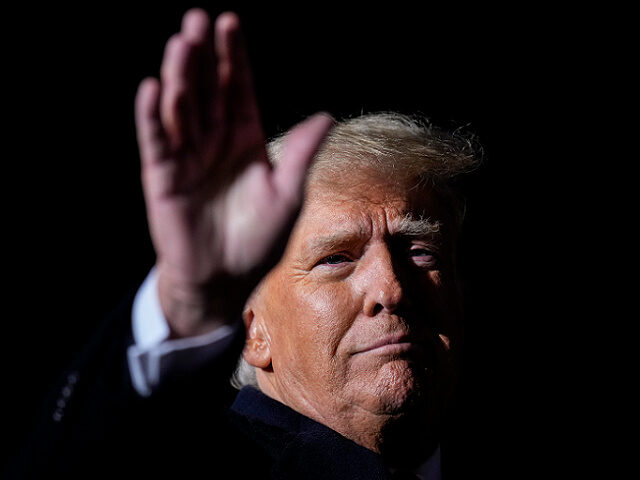Former President Donald Trump was indicted Thursday on charges that have yet to be revealed to the public, but which reportedly include seven counts related to his handling of classified documents.
There may also be one or more charges related to the Capitol riot on January 6, 2021, though the case is unfolding in the Southern District of Florida, not the District of Columbia. The indictment has yet to be unsealed as of early Friday.
Trump has agreed to surrender to authorities on Tuesday, June 13, whereupon he will be booked, processed, and presented to a court. He or his attorney will enter a plea — presumably, “not guilty.” He will appear, at least initially, before Judge Aileen Cannon, one of his appointees. That has not protected him from harsh treatment in other courts, though she did appoint a “special master” in the Mar-a-Lago raid, defying left-wing legal critics.
The judge could set bail, or simply allow Trump to walk out of the federal courthouse on his own recognizance. She would probably not order his passport to be surrendered, since he is not likely a flight risk: he is running for president and actively campaigning throughout the early primary states. One unique factor in that decision, however, may be that Trump — unlike most defendants — has his own plane, and overseas properties to “visit.”
What follows will be a series of pretrial motions. Trump’s legal team will try to quash the indictment, or to have the case dismissed, on a variety of procedural grounds. There are allegations of prosecutorial misconduct, some serious enough to have prompted another judge to order the government and defense to prepare briefs for the court on the matter. There are also claims that prosecutors violated attorney-client privilege at the grand jury.
If the case survives the preliminary stages, a judge could set dates for jury selection and trial — presumably next year, or even the year after. If the case proceeds in Florida, as seems likely, Trump would almost certainly opt for a jury trial in a state that he won in both 2016 and 2020 — though the city of Miami itself, and neighboring Broward County, are not friendly territory. It may also be hard to find jurors who do not yet have an opinion.
Trump would not necessarily testify in his own defense. But after he declined to do so in a recent civil case in Manhattan, a jury found against him. In this case, facing criminal penalties that could amount to 20 years in prison for some of the charges, Trump might decide to use his star power to sway the jury. They might want to hear from him directly about whether he actually intended to keep documents he knew, somehow, were not his.
At every stage, Trump’s defense team will move to have the charges dismissed or to have the judge issue a verdict in favor of the defendant. They will argue that Special Counsel Jack Smith does not have evidence that meets every element of the various charges. Those motions usually fail, but Smith has a bad record of losing corruption cases against political figures, or having convictions overturned on appeal on procedural grounds.
If Trump is convicted and sentenced, he might face an effective life sentence for what appear to be minor charges. And there seems to be no desire by the Department of Justice to move on years-old investigations against President Joe Biden or his son Hunter Biden. At that stage, the trial moves outside the courtroom: it becomes a trial of the strength of American society, and whether it can survive the end of impartial justice.
Joel B. Pollak is Senior Editor-at-Large at Breitbart News and the host of Breitbart News Sunday on Sirius XM Patriot on Sunday evenings from 7 p.m. to 10 p.m. ET (4 p.m. to 7 p.m. PT). He is the author of the new biography, Rhoda: ‘Comrade Kadalie, You Are Out of Order’. He is also the author of the recent e-book, Neither Free nor Fair: The 2020 U.S. Presidential Election. He is a winner of the 2018 Robert Novak Journalism Alumni Fellowship. Follow him on Twitter at @joelpollak.

COMMENTS
Please let us know if you're having issues with commenting.